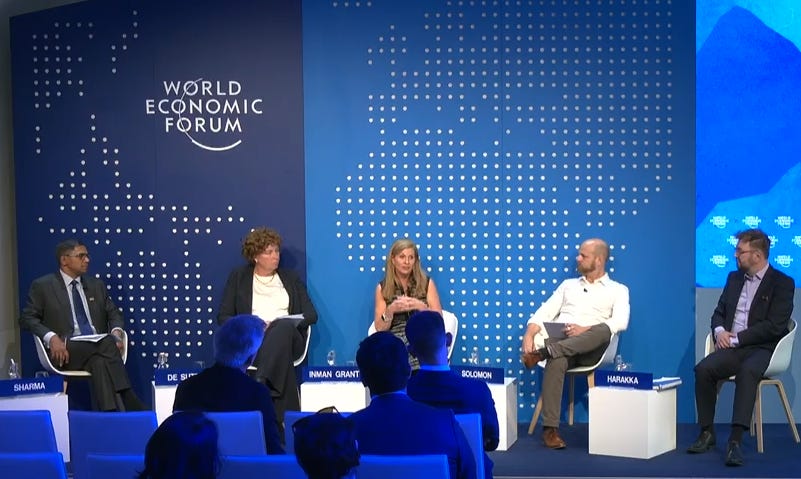A 'Recalibration' of 'Human Rights': WEF Panelists Want to Transform the Digital World
(This article is adapted from an article I originally wrote for and published on MRC Free Speech America.)
If you want to know what kind of dystopian insanity the globalist elites are planning next, check in on what the World Economic Forum is spouting about lately. Australian eSafety commissioner Julie Inman Grant called for a “recalibration” of “freedom of speech” online during the World Economic Forum conference in Davos, Switzerland, on Monday. BusinessWorld’s Pranjal Sharma also claimed that governments should have “the right on our data as citizens,” including private medical data.
The World Economic Forum’s (WEF) Davos conference included a panel called, “Ushering in a Safer Digital Future.” Panelist Inman Grant made a stunning statement while defending her work as Australian eSafety commissioner, claiming, “I think we’re going to have to think about a recalibration of a whole range of human rights that are playing out online, you know, from freedom of speech to the freedom to–you know–to be free from online violence.”1
But Inman Grant was not the only person making concerning statements about the internet. BusinessWorld contributing editor Pranjal Sharma made it clear just how invasive he thinks governments should be. He said:
“There is personal data, and there is the data of us as citizens. And I think the government and the country has the right on our data as citizens. For example, if you want to collect all data on medical history to be able to analyze what is going wrong with a certain disease, you need to have that access.”2
Sharma concluded, “[T]he concept of data ownership is going to evolve much faster than we realize.” It’s interesting that, during WEF’s Davos Agenda 2021 conference, a panel predicted a “Covid-like” online virus that could necessitate elites having the ability to shut down every private device in the world in a matter of days.
There was some pushback against Inman Grant and Sharma even from fellow panelist and Access Now executive director Brett Solomon, who noted that content removal is an “extremely serious matter.” Even he added, however, “There’s actually different types of speech.”
The whole panel talk included fighting alleged “misinformation” as a key point. Sharma claimed that “misinformation” is “organized” and cited Brexit and the “U.S. presidential elections” as examples, saying the alleged misinformation is “by design, so if you have an attack by design you have to counter it by design and much force.” Finland’s Minister of Transport and Communications Timo Harakka later cited Donald Trump specifically as an instance when social media platforms didn’t address a “problem” well or transparently. This wasn’t the only Davos talk to praise censorship, either—YouTube CEO Susan Wojcicki in another talk apparently tried to put a positive spin on her company’s draconian censorship efforts (while contradictorily claiming YouTube “focuses on free speech”).
Inman Grant has multiple Big Tech ties, having previously worked for Microsoft, Twitter and Adobe. She said during the WEF panel the work of her eSafety office involves a “complex dance of cooperation and compliance.” Inman Grant brought up Elon Musk’s recent effort to make Twitter pro-free speech and claimed that freedom of speech cannot be a “free-for-all” where “marginalized” voices and “intersectional factors” are supposedly silenced. She didn’t seem to recognize the irony of claiming that free speech silences voices while censorship doesn’t. Meanwhile, Belgian official Petra De Sutter told her fellow WEF panelists about the importance of her efforts in implementing controversial and potentially dangerous 5G networks.
The World Economic Forum has headed or supported many controversial and authoritarian initiatives, including the “Great Reset.” WEF also predicted in 2016 that, by 2030, you’ll “Own Nothing, Have No Privacy And Life Has Never Been Better.”
Begins around 32:34 in the linked video.
Begins around 14:13 in the linked video.




